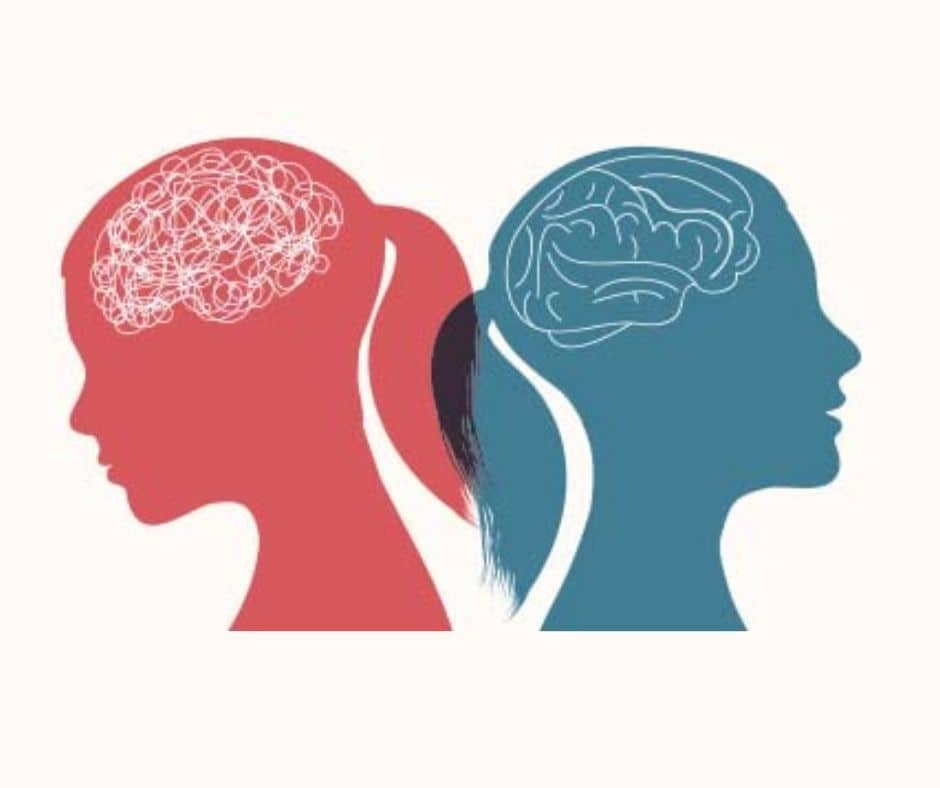When it comes to treating substance abuse and addiction, many (if not most) patients we see come into treatment not only struggling to control their alcohol or drug use, but also dealing with one or more co-occurring mental health conditions – a situation known as a dual diagnosis. Dual-diagnosis treatment is the method of treating both the addiction and the mental health condition at the same time.
Common mental health conditions that affect people with substance abuse include:
- Anxiety disorders
- Depression
- Attention deficit hyperactivity disorder (ADHD)
- Post-Traumatic Stress Disorder (PTSD)
- Personality disorders
- Eating disorders
- Sleep Disorders
In the past, the prevailing method for dealing with co-occurring addiction and mental health conditions was to take things one at a time. The patient would detox off their substance of choice, complete a 28-, 60-, or 90-day treatment program, THEN get help for their mental health condition after leaving the program. Unfortunately, this method can make it extremely difficult for the person to find stability and often hinders their progress in the program and, ultimately, puts them at a higher risk of leaving treatment early and relapsing.
Why is it better to treat co-occurring conditions at the same time?
These two issues are distinct, but in almost every case they’re also inextricably linked – that is, the patient’s mental health condition contributes their addiction and vice versa. Many people, for instance, use drugs or alcohol to self-medicate a mental health disorder (or perceived disorder), drinking or taking drugs to temporarily suppress symptoms like anxiety and depression.
However, in the long run this substance use actually alters their brain chemistry and makes their condition worse – and means they are going to need more of that substance to get relief. Other studies have shown that the changes in brain structure caused by substance use can even lead to the development of mental disorders in the first place.
Because of this relationship, when someone tries to stop drinking or using drugs, their mental health condition often intensifies. This isn’t just uncomfortable; it also makes it extremely difficult for the person to focus on and participate in an addiction treatment program.
By treating both issues at the same time, dual diagnosis treatment helps patients feel more comfortable, optimistic, and more likely to fully participate in – sometimes even enjoy – treatment and view it as a positive experience.
How does dual diagnosis treatment address addiction and mental health at the same time?
To tackle both conditions at the same time, substance abuse treatment facilities that offer dual diagnosis treatment need to employ highly trained mental health practitioners who can diagnose any disorder(s), prescribe any necessary (non-addictive) medications, and administer the ongoing psychiatric therapy and support needed for a given mental disorder.
At the same time, the facility also needs to have medical staff who can attend to any physical conditions, as well as a suite of counselors and other licensed professionals who can help with therapy and administrative duties. This is a major undertaking, and many substance abuse treatment providers simply aren’t equipped to offer such a comprehensive program.
Dual diagnosis treatment at Enterhealth
At Enterhealth, we employ a full-time staff that includes highly trained psychiatrists, psychologists, and master’s level therapists who work onsite and have expertise in the following areas:
- Individual and group talk therapy and counseling
- Family talk therapy and counseling
- Cognitive Behavioral Therapy (CBT)
- Dialectical Behavioral Therapy (DBT)
- Motivational Enhancement Therapy or Motivation Interviewing (MI)
- Rational Emotive Behavioral Therapy (REBT)
- Eye Movement Desensitization and Reprocessing (EMDR)
- Quantitative Electroencephalograms (qEEG)
- Psychological feedback treatment
Many of these therapeutic modalities are on the cutting edge of addiction science, and because they require highly trained professionals to administer them, many of them are not utilized or offered by other addiction treatment providers.
Our addiction experts create a personalized addiction treatment plan for every single patient, starting with a battery of assessments designed to identify any co-occurring mental disorders. From there, the team collaborates to put together a treatment plan that combines medical and psychological therapies, as well as ways to provide emotional, spiritual, and social support.




